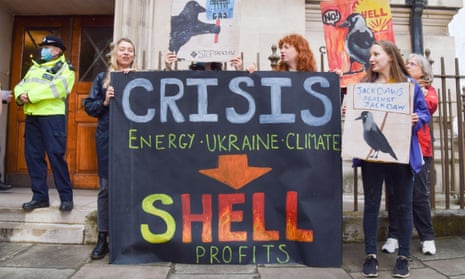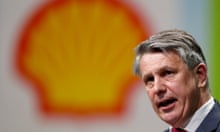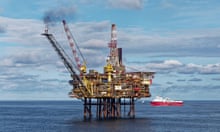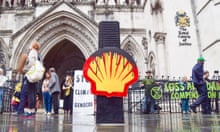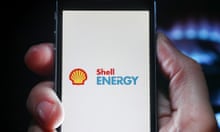Shell made record profits of nearly £10bn between April and June and promised to give shareholders payouts worth £6.5bn as the oil supermajor benefited from the surge in energy prices prompted by Russia’s invasion of Ukraine.
The FTSE 100 company made adjusted profits of $11.5bn (£9.5bn) during the second quarter of the year, beating its previous high – set between January and March – by 26%. The profits were more than double the same period in 2021, and higher than expected by analysts.
It has been a period of roaring trade for Shell and other major oil and gas companies, in contrast to struggling households and much of the rest of the economy. Higher energy prices have caused inflation to soar to 40-year highs in the UK and elsewhere, and which threaten to tip economies into recessions across much of the world.
British Gas owner Centrica, also a member of the FTSE 100, on Thursday reinstated its dividend as it reported bumper operating profits of £1.3bn during the first half of 2022 thanks to higher prices for the oil and gas it drills.
Chris O’Shea, Centrica’s chief executive, said it was “the most challenging energy crisis in living memory” even as his company reported its highest adjusted operating profits since 2013.
The scale of the oil companies’ profits prompted the UK government to eventually give in to demands for a windfall tax to redistribute some of the profits, although some senior Conservative ministers are thought to favour removing the tax, amid a leadership campaign that will lead to a new prime minister and cabinet in September.
The windfall tax – known as the energy profits levy – did not come into force until 14 July, meaning the companies’ second-quarter profits and payouts to shareholders were not affected.
The sector has remained a bonanza for oil companies and their shareholders. Shell investors received $7.4bn in the first quarter of 2022 and will receive another $6bn in a share buyback and $1.8bn in dividends announced on Tuesday.
Shell said it had experienced “higher realised prices, higher refining margins and higher gas and power trading”.
Vladimir Putin’s invasionmeans Shell may have to abandon its stake in the Sakhalin-2 gas project with Russia’s Gazprom as well as petrol stations in the country. Yet the recognised costs of abandoning Russia are $4.3bn – just over a third of the profits Shell has made in three months after Kremlin troops entered Ukraine. The company had already booked costs worth $4.2bn related to its withdrawal from Russia, but it increased this estimate by only $111m in the second quarter of the year.
Shell said it expected the tight energy market was here to stay. It added $4.3bn to its income attributable to shareholders to account for higher than expected prices in the mid- and long-term “reflecting the current energy market demand and supply fundamentals”.
Ben van Beurden, Shell’s chief executive, recognised the “huge challenges for consumers, governments and companies alike” caused by the “volatile energy markets”, but argued that the company was “using our financial strength to invest in secure energy supplies which the world needs today, taking real, bold steps to cut carbon emissions and transforming our company for a low-carbon energy future.”
Centrica’s dividend payment will be worth about £59m to shareholders. It made £900m during the quarter from its oil and gas drilling arm, which it is in the process of selling off part of.
Centrica’s retail business, under the British Gas brand, has also had to deal with extra costs because of an influx of customers from smaller energy suppliers who failed to prepare for higher prices.
It gained 158,000 new accounts when it took over the responsibility to sell gas and electricity to Together Energy’s customers.
